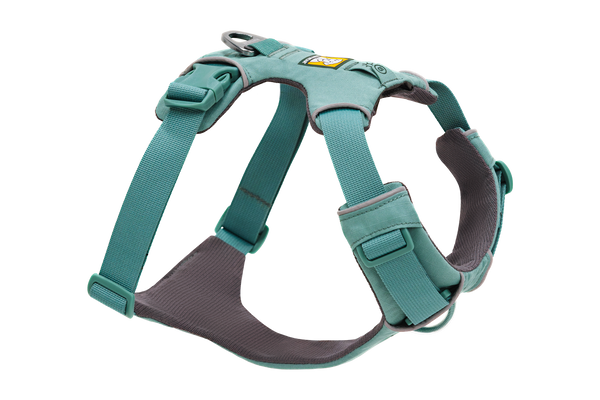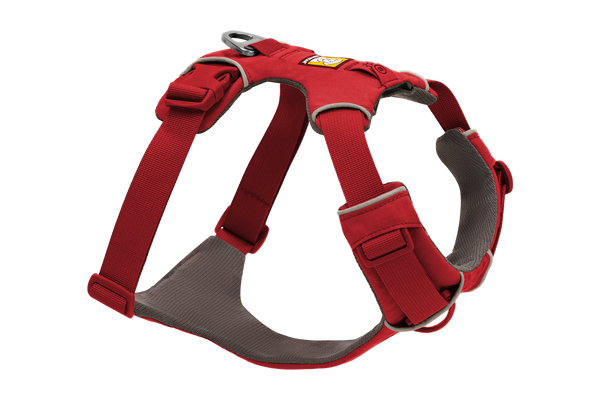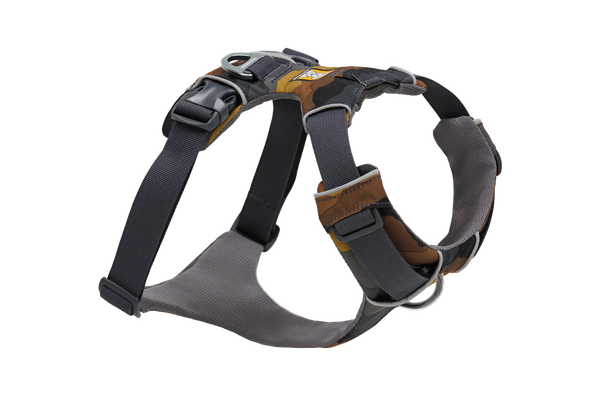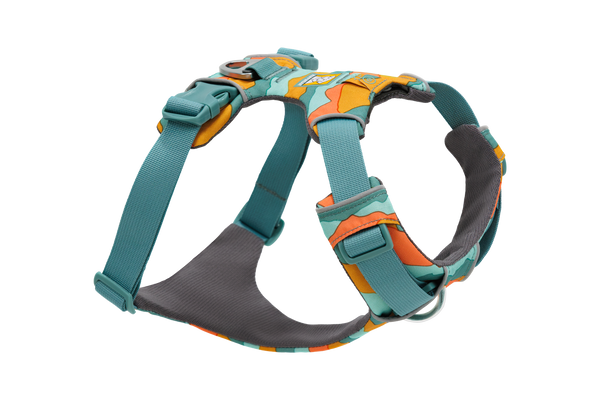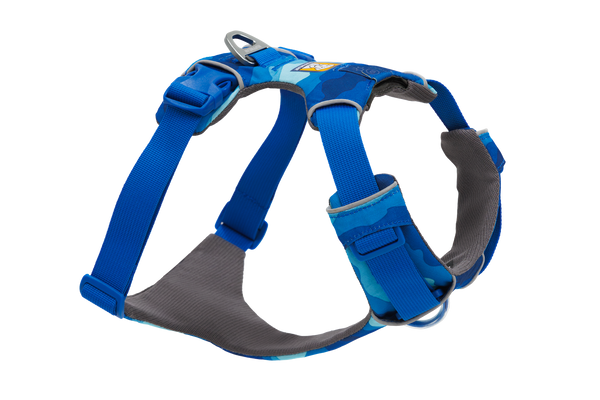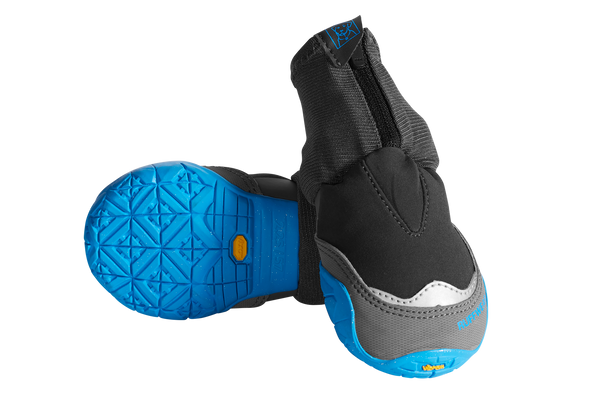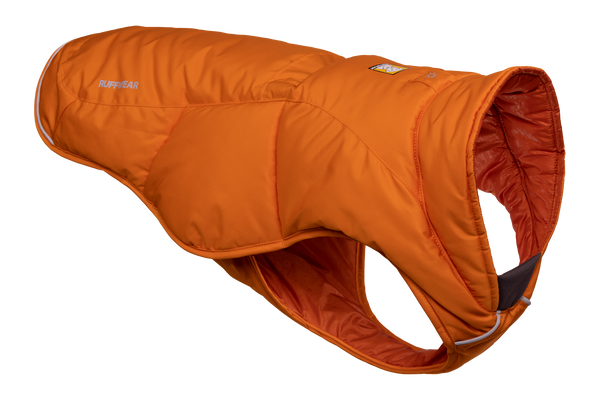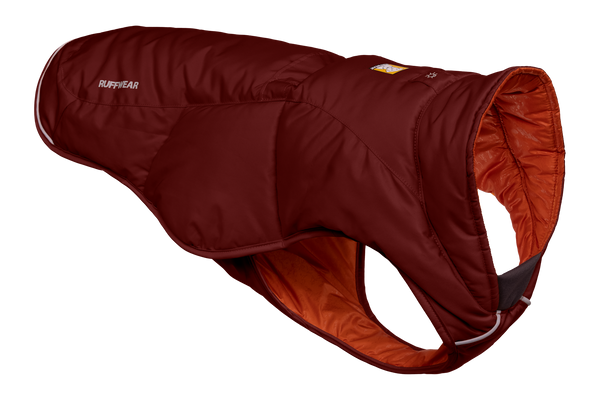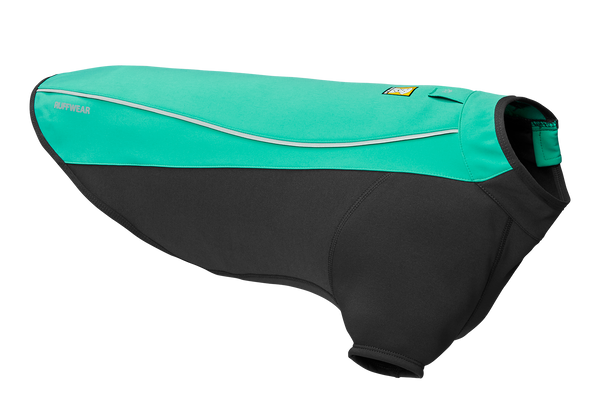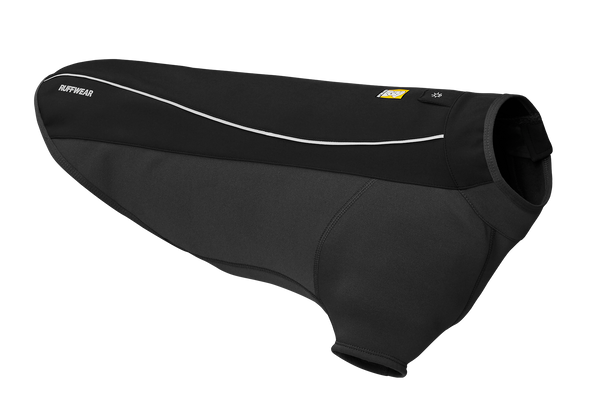Bento's Superpower: A Therapy Dog Delivers Joy to OHSU Hospital
“Bento, come,” I say, as I tap a corner of the bed. A 65-pound cream Labrador gracefully jumps on to an empty portion of a patient’s bed. The patient, wearing a cumbersome neck brace, can only see what’s above him. Bento is nose to nose with the patient. It’s a face off and the patient is quick to crack a smile. Well done, Bento.
I direct Bento to lay down next to the patient, who begins to stroke Bento’s back, and then behind his ears. A nurse delivering medication enters the room and asks the patient to rate his pain on a scale of one to ten.
“It’s an eight,” he says in frustration. The nurse provides him some medication and offers to return with a stronger dose.
Meanwhile, Bento rests his head on the patient’s chest and leans his side into him. The patient’s arm firmly embraces Bento’s side, and his thumb wraps around Bento’s collar. The gesture tells me he does not want Bento to leave. Bento slowly falls asleep.

“I haven’t seen my dog. I haven’t had physical contact like this for weeks,'' says the patient as he rhythmically kneads the loose skin on Bento’s back, “dogs are my life, I’ve had six.”
Tears run down the corner of the man’s eyes. “If it weren’t for my dog...,” he sighs and shakes his head. “I’m old. My good friend recently died. Then I had this accident. I rolled down a ravine and broke my neck. My head hit the windshield. My knee even broke the steering column…”
The patient pauses and closes his eyes. I give him a moment as I see his face relax. Then I realize he’s snoring. I wonder, should I wake him? Should I quietly leave?
Meanwhile, I hear the nursing staff in the hallway passing. They make comments of how cute it is to see Bento sleeping on the side of the bed.
For 20 minutes I stand there thinking I’m not doing very much, but I see how Bento is actually bringing everyone together. The patient is comfortable enough to sleep, the nursing staff appreciates Bento, and Bento is recharging for more patient interactions.
Bento is an AAT (Animal-Assisted Therapy) dog at Oregon Health & Sciences University Hospital in Portland, Oregon. We are a volunteer animal therapy team, certified by Dove Lewis Animal Hospital’s PACTT (Portland Area Canine Therapy Team), whose purpose is to provide emotional support.
Bento’s snuggles and tail wags help to make the hospital experience feel less lonely and frightening for the patients, and less stressful for the staff.

Photo by Samson Hatae
Bento's Superpower
Some working dogs identify drug smugglers or guide the blind across busy intersections, but my dog is a little different. His job is to make you smile.
His favorite thing to do is snuggle. He leisurely walks around and he is so compliant, he doesn’t even care if you bathe him weekly or wipe him or his waterproof collar between patient unit visits – a required safety procedure to protect the patients at OHSU. Most of all, he loves being pet. His personality is perfect for his role as a therapy dog.
Photo by Samson Hatae
Bento will match the attention you give him. If you show interest with eye contact, he will seek you out for a pet. If you don’t give him your attention, he will mind his own business. This is important for therapy work. Some people prefer limited engagement with dogs.
There are things Bento doesn’t do that make him a good therapy dog. He won’t jump, scavenge in rooms, or beg for attention or food.
Bento is also accustomed to public places. My friend Emily raised Bento to be a guide dog. Bento lived with Emily at a dorm and attended classes with her. He trained to obediently ride in elevators, walk in packed corridors, and sit by her side in loud spaces.
If Bento is a superhero, I’m his sidekick. I guide Bento into interactions, and let him do most of the work. I monitor his energy and fatigue. Occasionally, I will redirect Bento – such as helping him focus on a patient rather than food dropped on the floor.
Visits
Visits are requested by social workers or nursing staff on behalf of specific patients. We visit patients first, and make our way to various units of the hospital to meet with staff. But patient visits are our most important reason for being there. Many patients are alone. Some have no idea when they will return home, if at all. A few have no idea of what’s next.
I make my way to the patient’s room listed on the request. It’s an end-of-life visit to the oncology unit. I enter slowly to read the room. Am I in the right place? Bento wags his tail and breaks the ice.
The patient locks eyes with Bento. She sits on the side of the bed and waves us in. Her smile radiates toward us. She is surrounded by four family members. Along the wall are framed photos of what appear to be her family. There are even framed photographs of dogs. We know we are in the right place.
“Look at the pup!” says the family member pointing at Bento.
Bento approaches the patient. She leans toward him and asks, “Who's a good boy?”
Bento sits beside the patient, and leans his body into her leg. I’m concerned. Is he applying too much pressure? Is Bento too much in her space? But the patient laughs and says, “This is wonderful, I want more!”

Bento eventually crawls into a ball by the patient’s feet. The patient is surrounded by family and a dog. For a moment, the hospital feels cozy.
“Can Bento cuddle on me once more?” the patient asks.
Her face brightens as Bento complies. This time I don’t flinch. I’m the one laughing.
“What you do is so wonderful,” she says as Bento and I head out.
I leave the room and circle around the front desk to see if any staff want a quick break.
An alert is heard on the tiny transceivers the nursing staff use to communicate to each other: “Bento on 13K.” Bento is spotted in the Oncology unit. Like an F1 crew at a pit stop, a rush of giddy nurses scurry to the front desk area where we check-in.
They know the protocol. They pump some hand sanitizer on their hands, let it dry and pet Bento. One of the nurses pauses and recognizes me. “You and the snack person are our favorite people,” she gushes. The nurses get a few more snuggles from Bento, apply more hand sanitizer and then quickly return to work.

We make our way to the elevator as we finish our shift. The doors open. A physician steps out. He makes eye contact with Bento, then me, and quickly says with a grin, “Now this is something to look forward to in a hospital.” It’s a wonderful affirmation of what we are doing here.
Bento and I leave believing we made it a better day for the people at OHSU.

Photo by Samson Hatae
Mark works in marketing in Portland, Oregon. In his free time, he rides his bike and volunteers at Guide Dogs for the Blind. That’s where he met Bento, who needed a home after he changed careers from training to become a guide dog. Now Bento and Mark work together to help people needing some extra canine positivity. Their adventures are documented @k9camera.



